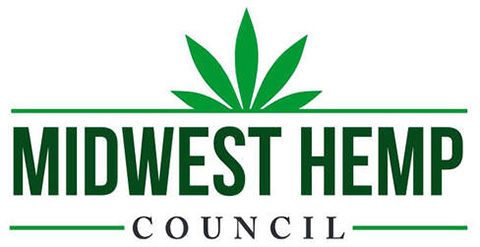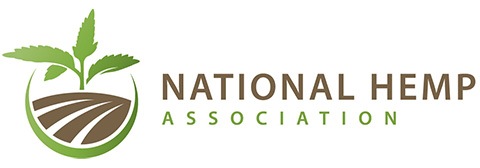


Recent statements from top U.S. Food and Drug Administration (FDA) officials are reviving hopes that, after years of inaction, the agency might soon hand down regulations for CBD and other hemp-derived cannabinoids. According to a late December report in the Wall Street Journal, the FDA, “after weighing the evidence … will decide within months how legal cannabis should best be regulated and whether that will require new agency rules or new legislation from Congress.”
The article also quoted Norman Birenbaum, Rhode Island’s former “Cannabis Czar” and the former director of medical marijuana and hemp programs in New York State. Birenbaum is now a senior public health advisor for the FDA, and he told the newspaper it is time for hemp regulation. “I don’t think that we can have the perfect be the enemy of the good when we’re looking at such a vast market that is so available and utilized,” he said. “You’ve got a widely unregulated market.”
In the past, the FDA has taken only limited actions on cannabinoids, such as sending warning letters to companies making medical claims about cannabinoid products and adding cannabinoids to human and pet food supplements. In such cases, the FDA noted that the companies were “illegally selling unapproved CBD products that claim to cure, mitigate, treat or prevent various diseases, and adding CBD to animal foods, such as pet treats.”
As things stand currently, CBD is not technically permitted to be marketed as a dietary supplement or added to foods. “Given what we know about the safety of CBD so far, it raises concerns for FDA about whether these existing regulatory pathways for food and dietary supplements are appropriate for this substance,” FDA Principal Deputy Commissioner Janet Woodcock told the Wall Street Journal.
Shawn Hauser is a partner at the Denver-based Vicente Sederberg law firm and co-chair of the firm’s Hemp and Cannabinoids Department. She finds the FDA officials’ comments encouraging and expects some forward movement on CBD regulations this year. However, she told Hemp Benchmarks, “I’m not optimistic that they’re going to announce a regulatory pathway for hemp-derived cannabinoids. I think it’s possible they will continue to cite a lack of safety data for CBD and certainly THC to be able to substantiate making an exception to the drug preclusion.”
Hauser explained that the drug preclusion “is a provision in the FDA that says once a substance has been cited as a drug it can’t also be a food or dietary supplement ingredient, unless FDA makes an exemption – which they have never done before, but could do now.” The drug preclusion applies to CBD due to it being the active ingredient in the FDA-approved prescription drug Epidiolex, which is indicated for the treatment of rare seizure disorders.
There have also been suggestions that the FDA might wait on Congress to act to create the necessary hemp sector regulations via the upcoming 2023 Farm Bill. “The Farm Bill is going to be a real opportunity to help provide legislative direction,” Jonathan Miller, General Counsel for the U.S. Hemp Roundtable (USHRT), told Hemp Benchmarks. “If [the FDA does not] act, we are going to be looking to the Farm Bill to require them to regulate CBD. But it could also be an opportunity for them to ask for some … approval of the regulatory process.”
On its website, the USHRT noted its leadership is scheduled to meet with FDA officials later this month, as part of a “continuing dialogue” on establishing regulatory guidelines for the hemp sector. “But more significantly,” it added, “especially given the FDA’s continuing suggestion that new legislative authority may be needed – we will be working with our key congressional sponsors … to introduce legislation in the new Congress that establishes a regulatory pathway for CBD and other hemp extracts.”
“It’s hard, after years of inaction with the FDA and Congress on hemp, to say the status quo is going to change,” Hauser at Vicente Sederberg said. “But I do think this year is a better opportunity than there’s been. Given the data the FDA has collected, the state regulatory frameworks [for hemp], data that companies have collected and continued bipartisan support. It’s long overdue but certainly possible.”
Hauser also views the 2023 Farm Bill and related legislation as “vehicles where Congress can address the obstacles in the drug preclusion.” She expects the Farm Bill will also address other outstanding issues for the hemp sector, such as raising the current 0.3% THC limit on hemp and currently-unregulated hemp-derived THC products, such as delta-8 THC.
The USHRT’s Miller acknowledged that delta-8 and similar hemp-derived THC products are “certainly on everyone’s minds.” His organization is pushing for the establishment of a federal commission to develop scientifically-based standards and strategies for intoxicating hemp cannabinoids.
“We would love to see the creation of that commission as part of the Farm Bill,” he said. Those regulations would have to be broad-based, “much more than just closing the [delta-8] loophole; it’s going to be about how we view those products … to make sure that these products are regulated strictly, and that they’re kept out of the hands of minors.”
Miller also noted, “particularly because the Farm Bill is on the [congressional] agenda, I think this could be an historic year for the [hemp] industry.”


